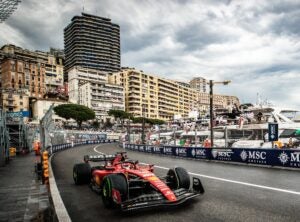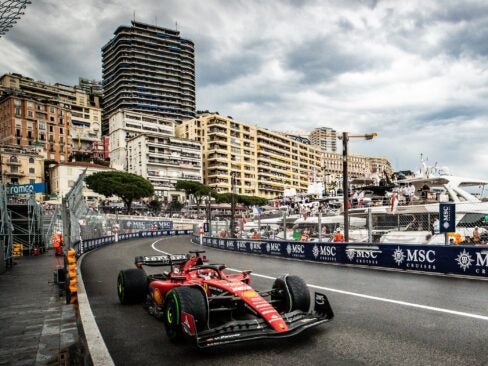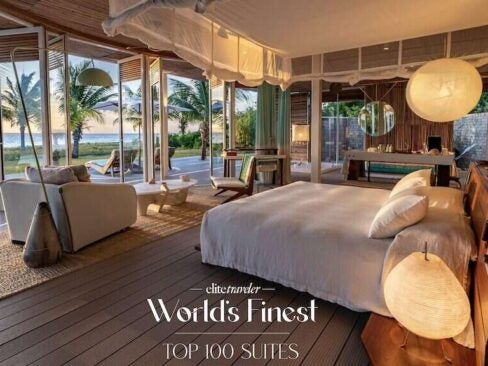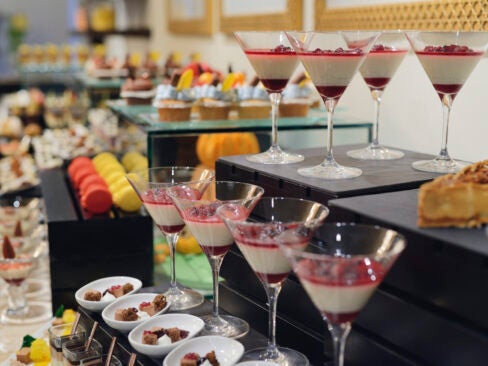By Victoria Stewart
 It has more Michelin stars per head than any other country and hosts a fancy fine dining festival. So how exactly did Switzerland become the restaurant capital of the world?
It has more Michelin stars per head than any other country and hosts a fancy fine dining festival. So how exactly did Switzerland become the restaurant capital of the world?
Mid-afternoon on a chilly Saturday and more than 60 bowls are lined up on a service table, while all around a gleaming kitchen young chefs are hard at work mixing sauces and rolling up canapés. Under the watchful eye of their leader, the three-Michelin-starred chef Christian Bau, the place is a hive of carefully controlled activity.
Yet four hours later, it’s a different story. The kitchen is pin-drop silent except for the clinking of spoons on plates drifting in from the great dining room, just a few yards away. The dining room is painted gold with original Impressionist paintings. Inside, sophisticated diners tuck into their fourth course, while the cooking team hover around nervously.
You’d be forgiven for thinking this is a behind-the-scenes glimpse at a top restaurant, perhaps Victor’s Gourmet-Restaurant Schloss Berg in Germany, where Bau is resident chef and has earned 19 Gault Millau points. But you’d be wrong.
This is Zurich, Switzerland and the setting is not a restaurant but a food festival, albeit a pretty special one. It’s the second annual Epicure Food Festival held at the five-star Dolder Grand Hotel, to which its own resident Michelinstarred chef, Heiko Nieder, himself with 18 Gault Millau points, has invited some of his European equals to cook alongside him for one night only. In addition to this feast, the festival has seen two other dinners; one, in collaboration with the three-Michelin-starred Gert De Mangeleer from Hertog Jan in Belgium; the second with Quique Dacosta of his eponymous three-Michelinstarred restaurant in Spain. Plus there are wine tastings, cocktail masterclasses and a final event where 11 chefs – with an impressive 22 stars between them – each serve a dish to every guest from private cooking stations.

Chef Heiko Nieder’s exquisite dishes
To call it exciting would be an understatement. Reflecting afterwards, Nieder recalls how he walked into the kitchen on Sunday to find 31 chefs standing there, instead of the usual nine. “It was just like a flock of chefs in white,” he says. “Everybody wanted to help. It was so busy, so much action, so much thinking. It was a nice challenge.” In all, the event attracted 600 guests and more Michelin-honored chefs than you could imagine. But how did an event with so many luminaries of the world gastronomy scene end up being hosted in Switzerland of all places?
Two chefs participating in Epicure believe money is the answer. Arjan Smit (chef and owner of De Pronckheer) and Onno Kokmeijer (of Hotel Okura Amsterdam) think the meteoric success of Switzerland’s fine-dining scene is a direct result of its demographic and wealth. “Switzerland and Germany have a market and audience for these kind of events,” Smit says.
Certainly Switzerland’s high-end restaurant scene is on fire. This year 18 dining rooms were handed their first Michelin star. This brings the total to 96 establishments with one star and 21 with two or more – a 40 percent rise in the number of Michelin stars awarded to restaurants there over the past five years. Given that this is a country with a population of only eight million, that is the highest number of stars per capita.

Judges at Epicure Festival
Some of these new award winners are found on Lake Geneva’s shores, also home to the Glion Institute of Higher Education, a school specializing in high-end hospitality management. It recently launched a luxury module to its training program, a shrewd move because, as Glion’s food and beverage service instructor, Carlos da Silva, puts it: “This segment is showing a steady growth”.
He attributes this to a number of factors, including Switzerland’s growing tourism industry. This is certainly true when it comes to US visitors in Switzerland – in 2014 the number reached 751,514, according to recently released data from the Swiss Federal Office of Statistics.
People are also increasingly appreciating Switzerland’s “quality products” and its organic food industry, da Silva points out, “which is growing exponentially”. He adds: “Of course the Swiss population has always traditionally visited restaurants. But what has happened over the last few years is that traditional Swiss cuisine is renewing itself, and people are interested again. A young generation of cooks is now taking over.”
One such success story is the 38-year-old, Swiss-born chef Andres Caminada who, after spending time cooking abroad, returned to his home country and now has three Michelin stars at his restaurant Schloss Schauenstein in Fürstenau, named one of Elite Traveler’s Top 100 Restaurants. “During my travels abroad I started appreciating all the values that Switzerland has – perfection, quality and punctuality – and I wanted to open my first restaurant here,” he says.

Yet even chefs of other nationalities are being seduced by Switzerland. Benoît Violier was born in France but has cooked up three Michelin stars for Restaurant de l’Hôtel de Ville, also one of Elite Traveler’s Top 100 Restaurants. “I’ve spent most of my professional life in Switzerland,” he says. “I first arrived here thanks to Joël Robuchon, my former chef in Paris, who encouraged me to work with Frédy Girardet. I fell in love with his approach to cooking, which was very respectful of the product and its original taste.”
Just one year later, Girardet retired. Philippe Rochat took over the restaurant and continued with this same approach to cooking. “He was an impressive teacher and soon became my mentor,” says Violier. “I can therefore say that it is both these chefs and their approach to cooking that convinced me to stay here.” However, fine restaurants cannot exist without their patrons. Andrin C Willi, editor of Marmite, one of Switzerland’s oldest food magazines, talks of the nation’s “high purchasing power… with guests that appreciate high-end or fine-dining restaurants” in the country’s biggest cities, Zurich and Geneva. According to private cityguide, Ursula Casanova, there are more than 350 banks in Zurich, including the headquarters of Credit Suisse, UBS and Swiss Re. Plus in Geneva, which has a history of private wealth management, there are more than 150 banks including major offices for BNP Paribas, HSBC Private Bank and Goldman Sachs. So is the luxury dining scene backed by bankers?
This is partly true, if Willi’s theory is to be believed. He says there are two types of backers: major, established investors and young, independent entrepreneurs. “On one hand there are big investors such as financier Urs Schwarzenbach,” he explains, referring to the major shareholder at The Restaurant in The Dolder Grand.
He also refers to asset manager Peter Pühringer, who finances the Park Hotel Vitznau and Linda Mühlemann who finances the exquisite Zurich restaurant, Mesa. Of Pühringer, Willi says: “He makes it possible for the popular young two-Michelin-star chef Nenad Mlinarevic to fully work on his version of new Swiss cuisine and be as creative as he is.”

And on the other hand, Willi refers to various restaurants run by young, independent entrepreneurs, such as Fabian Fuchs and his Zurich-based restaurant EquiTable, or Mark Blickenstorfer and his successful Maison Manesse, run by head chef Fabian Spiquel.
Many top hotels in Switzerland also have top chefs running their restaurants. German-born chef Peter Knogl is chef de cuisine at the three-starred Restaurant Cheval Blanc in Basel’s Grand Hotel Les Trois Rois; three-starred chef Anne-Sophie Pic at the two–star Beau-Rivage Palace Hotel in Lausanne; and the three-starred Roberto Cerea at the Carlton Hotel in St. Moritz.
In fact, da Silva has noticed huge investment in hospitality, especially in hotels, both privately and from the government. In 2014 the Swiss 104 elite traveler JAN/FEB 2016 Society for Hotel Credit, which has a mandate from the Swiss government to promote the hospitality sector, granted loans of $39m. Now, da Silva says, Switzerland’s top service has generated interest around the world: “It is interesting to see many other countries, including the US, send a delegate to Switzerland to start a collaboration in the field of vocational education. People have to look for innovative ideas I think, because there is money here, let’s be honest…”
If anyone is being innovative in Switzerland, it’s Nieder at The Dolder Grand. Since its renovation in 2008, his patrons have been able to arrive on the rooftop helipad to enjoy a feast in the gilded private dining room. “We were one of the first ones here who presented a new kind of kitchen,” he says.
“There are a lot of famous and very good traditional restaurants in Switzerland, but at first it was difficult because we were so different to the others. When they saw us, they were a bit wary and thought ‘let’s see what happens’. And now it is good. But we still have more to do.”








